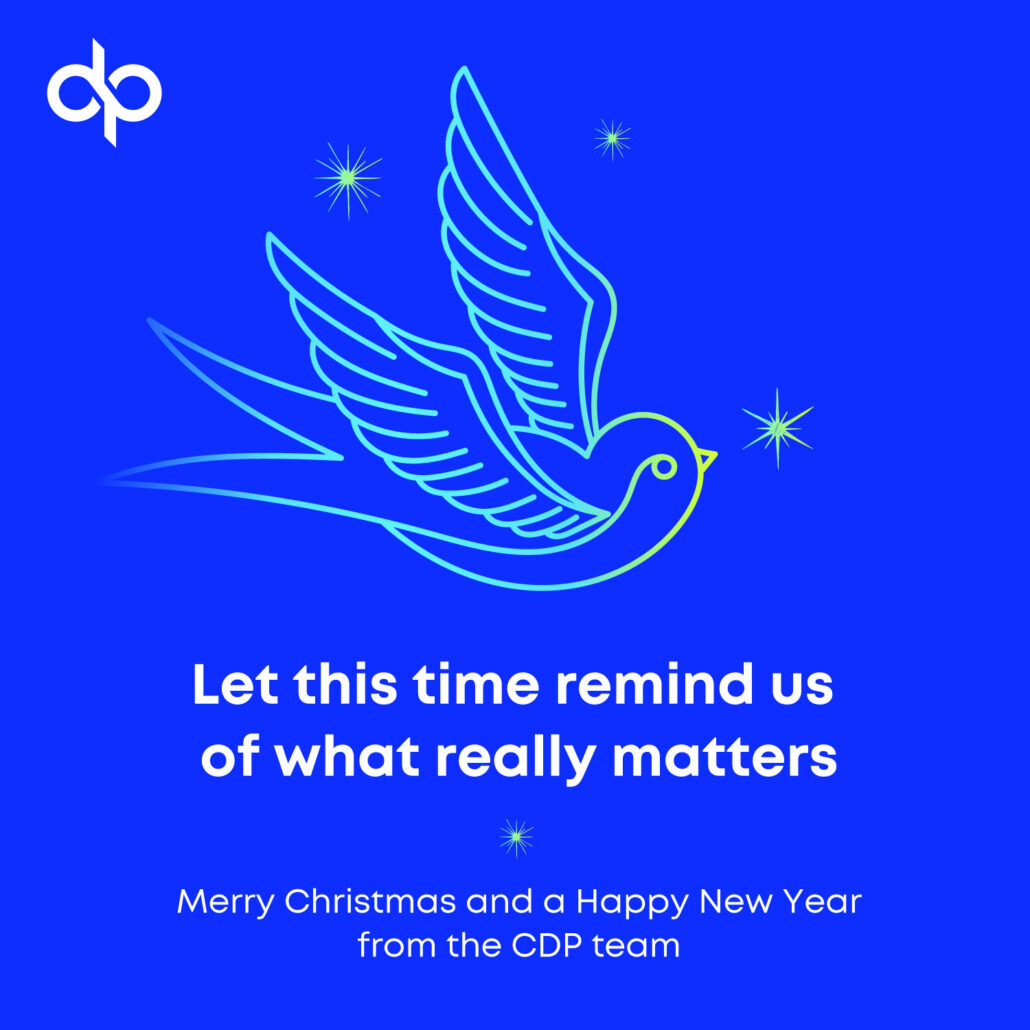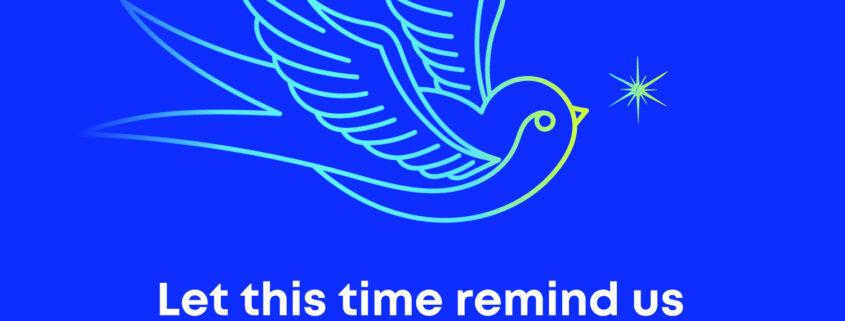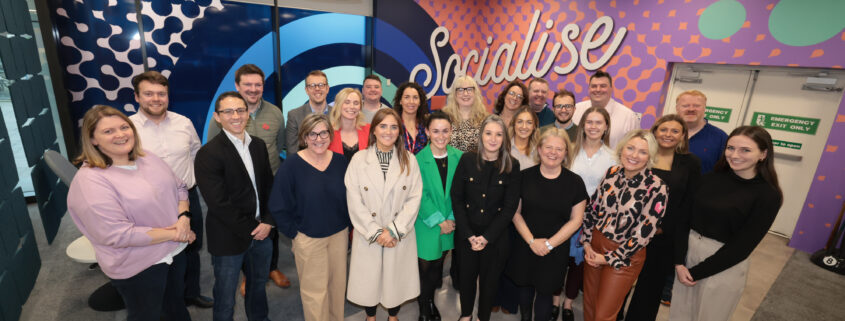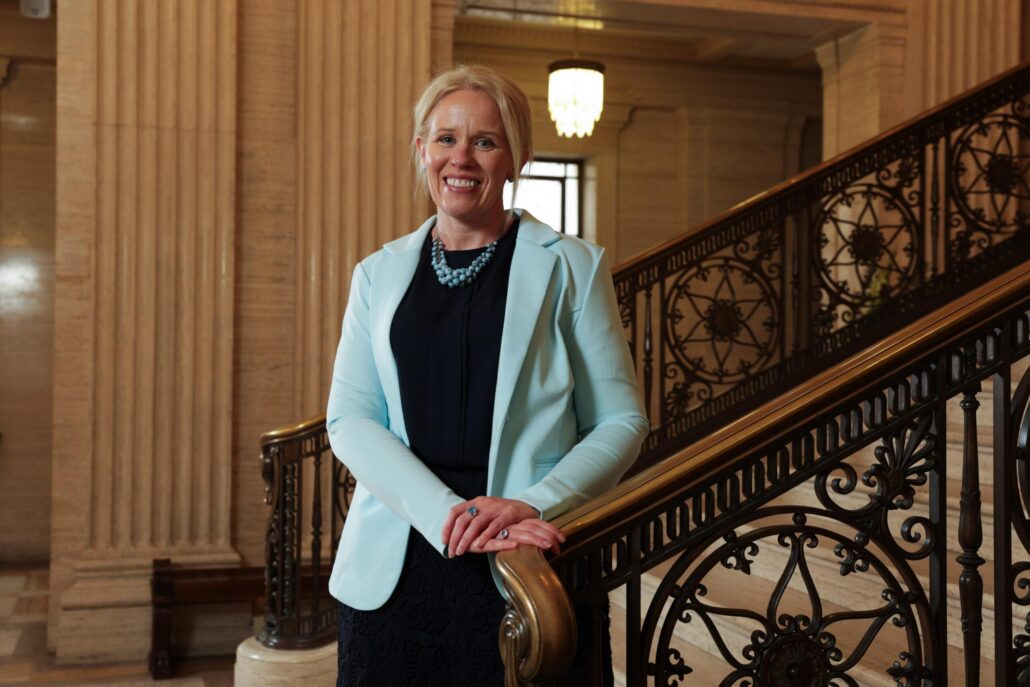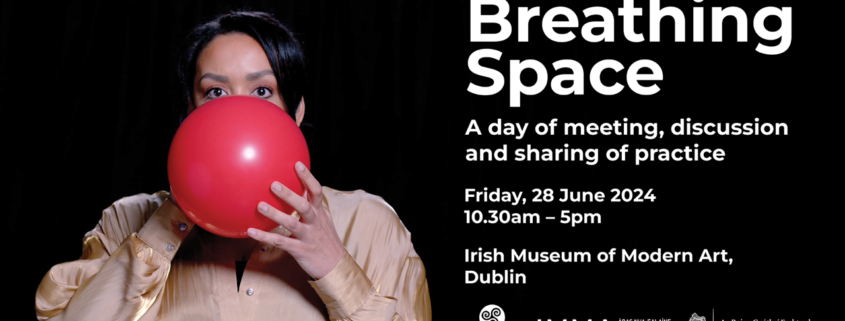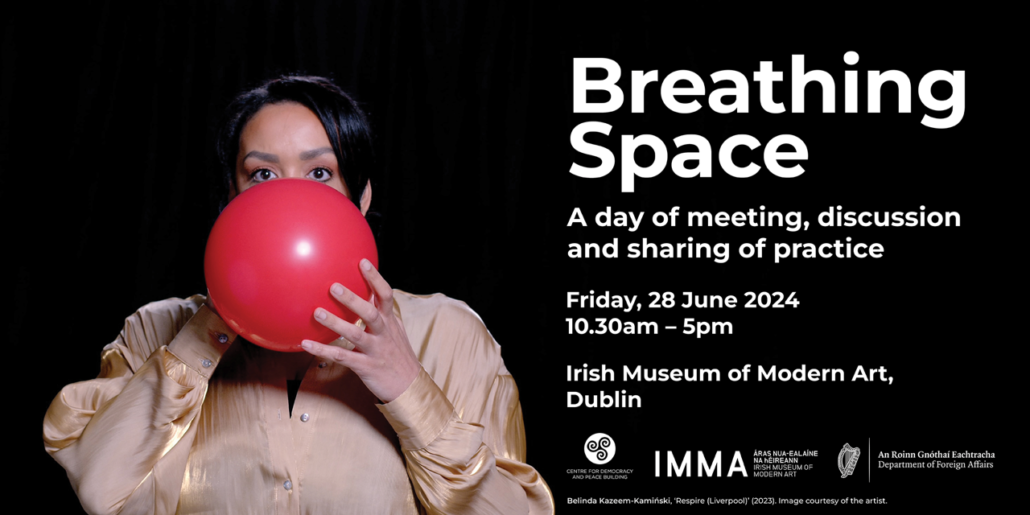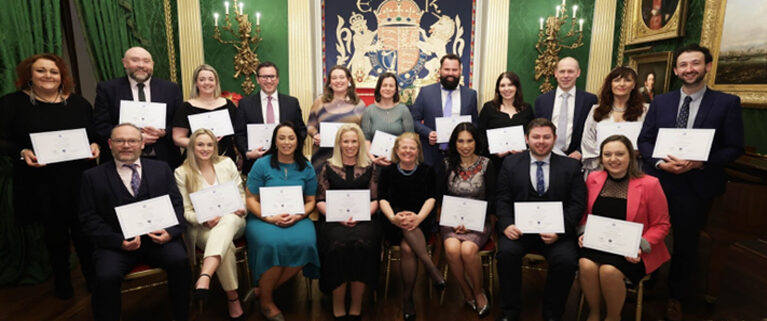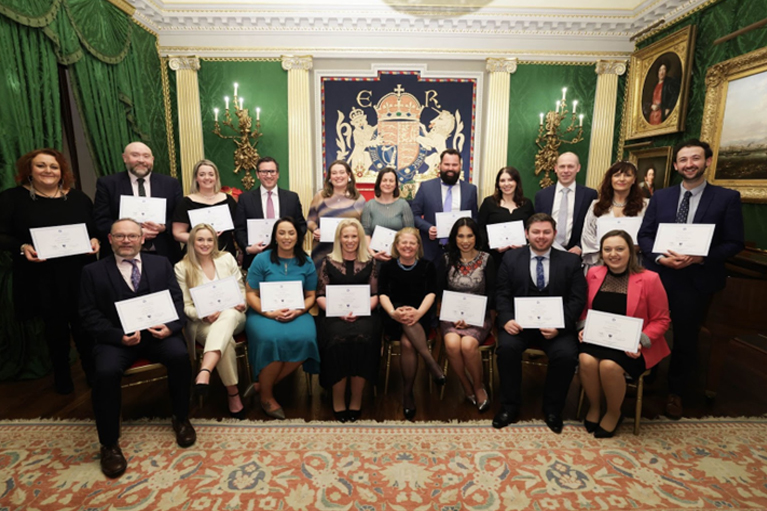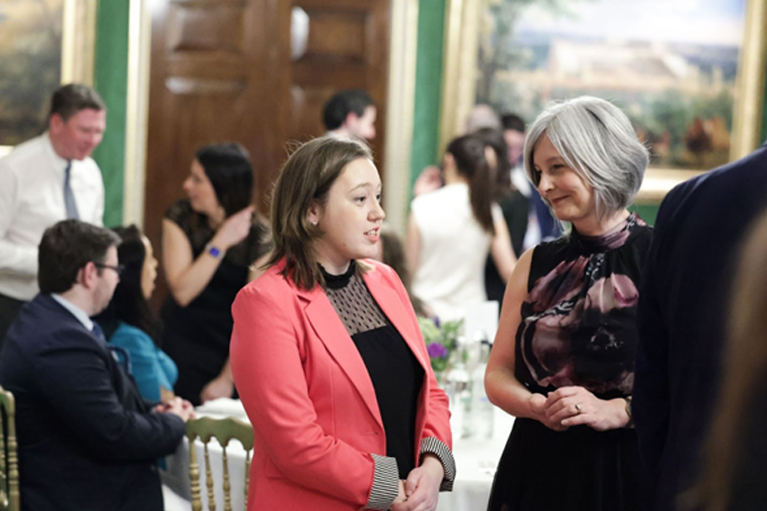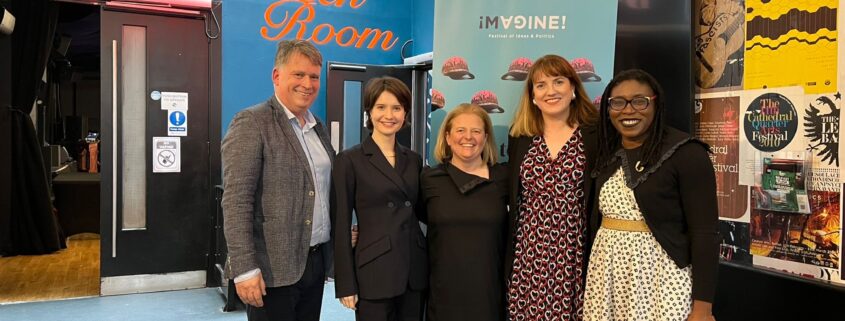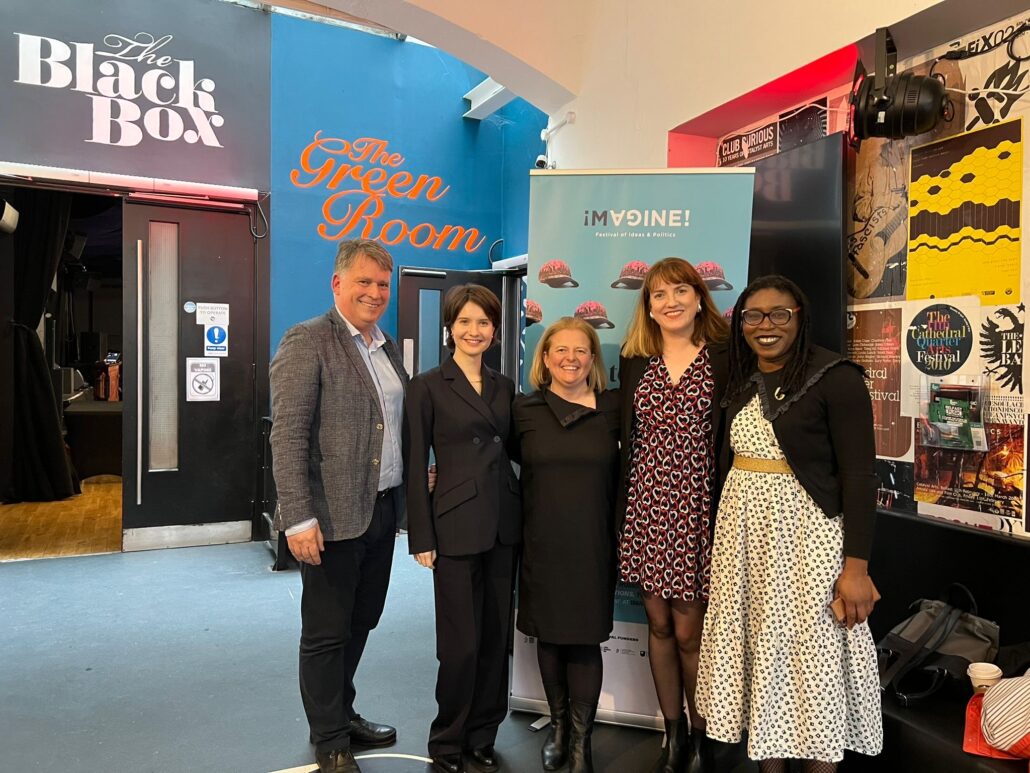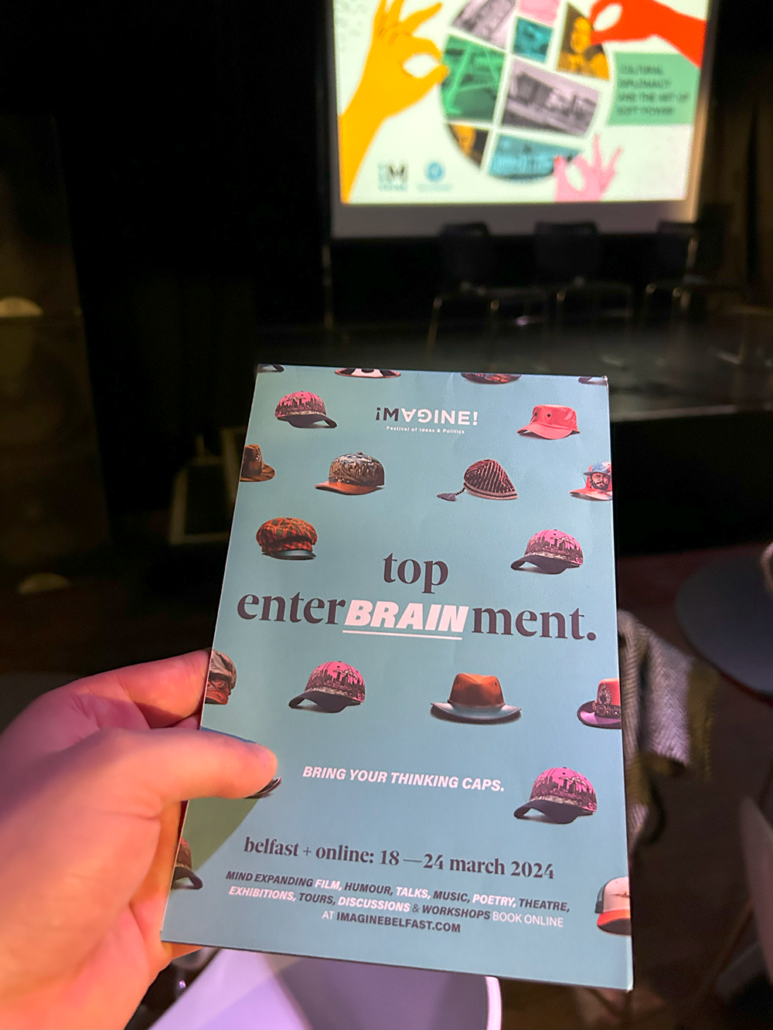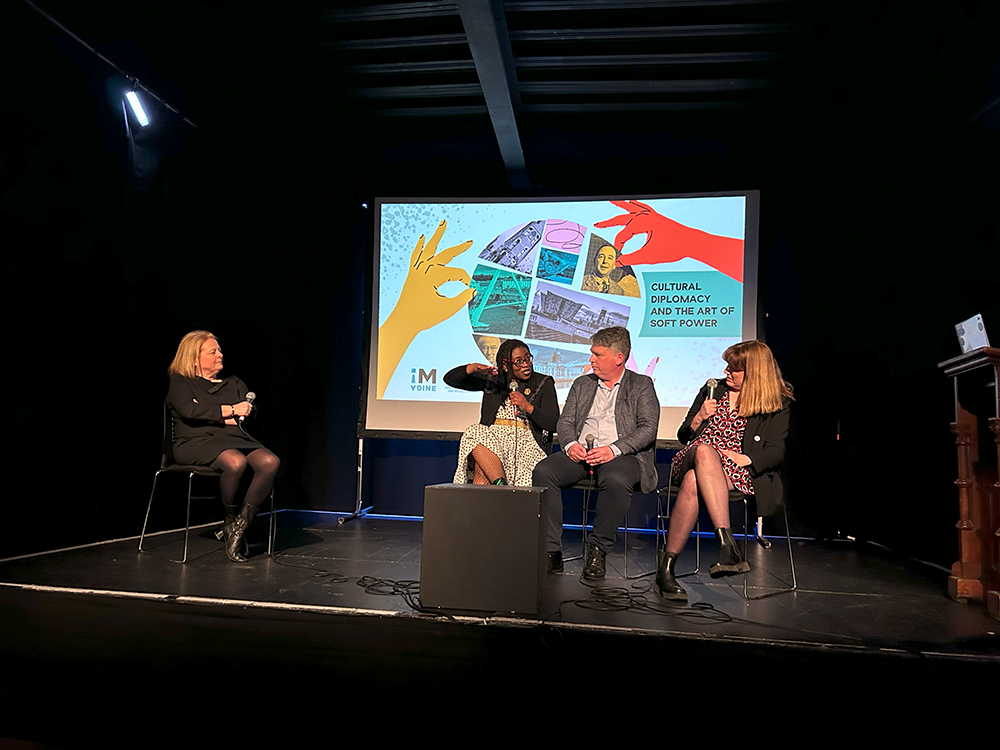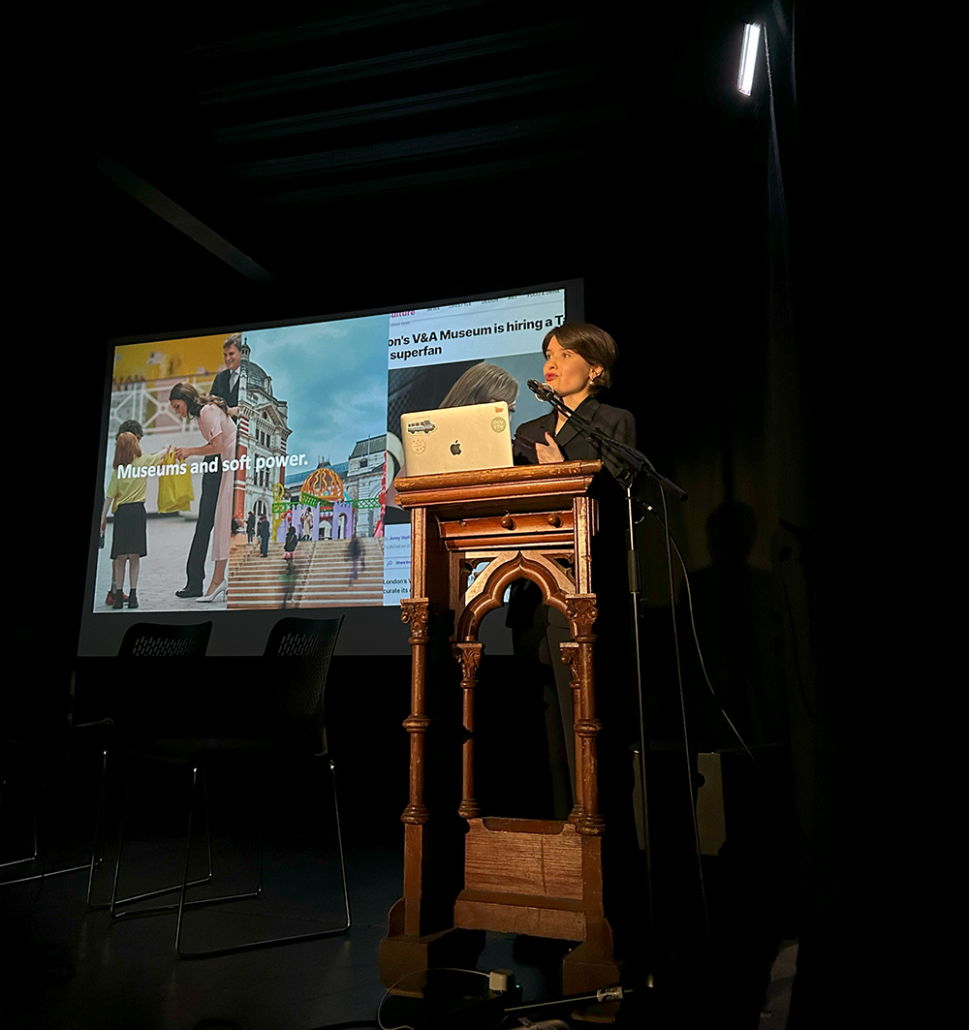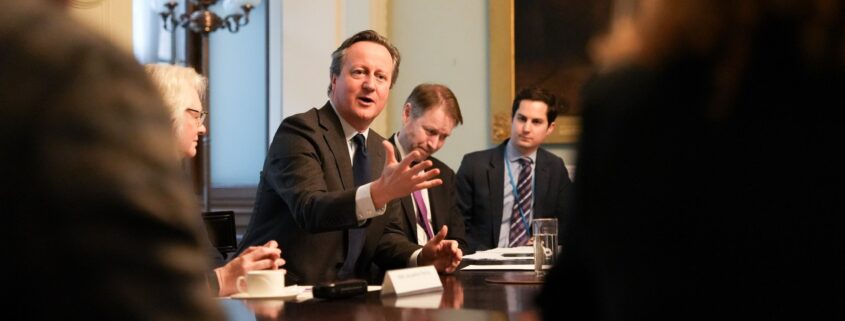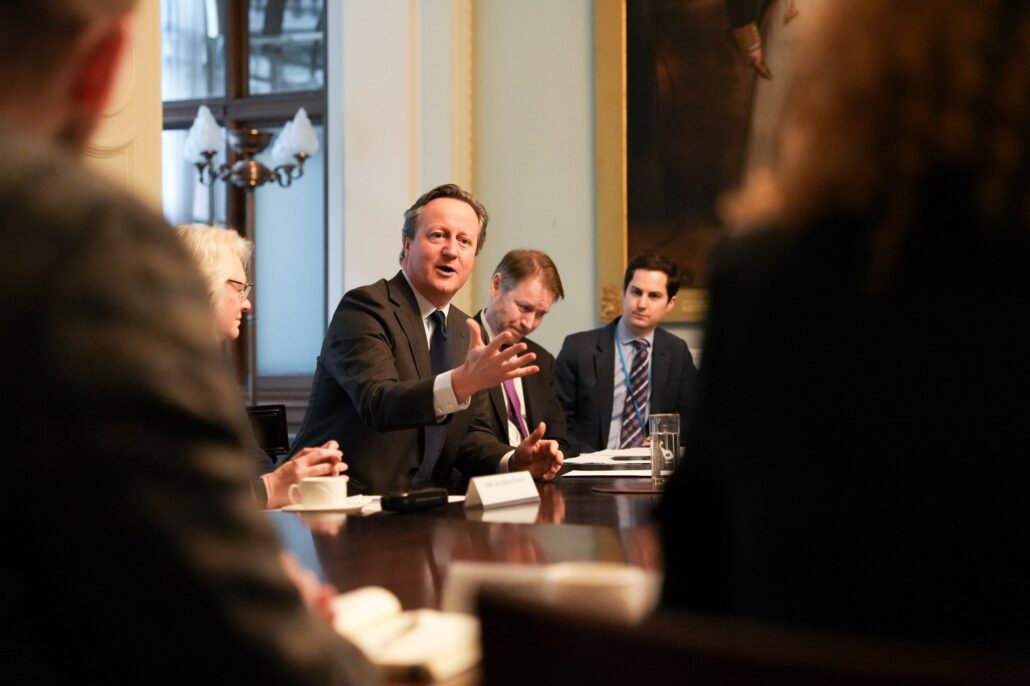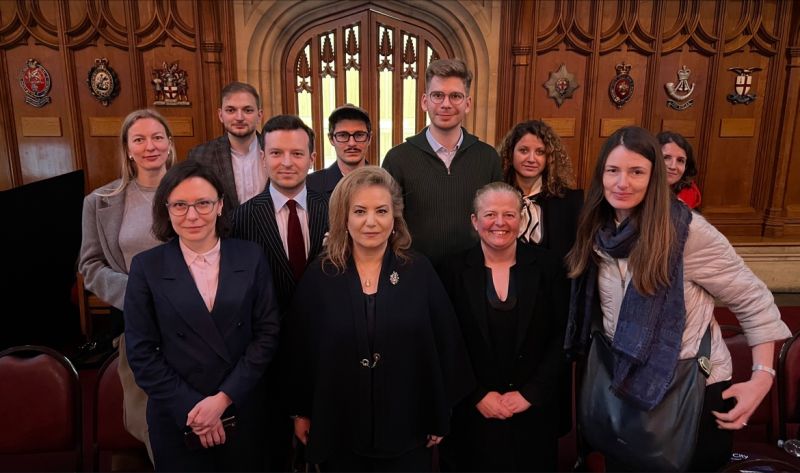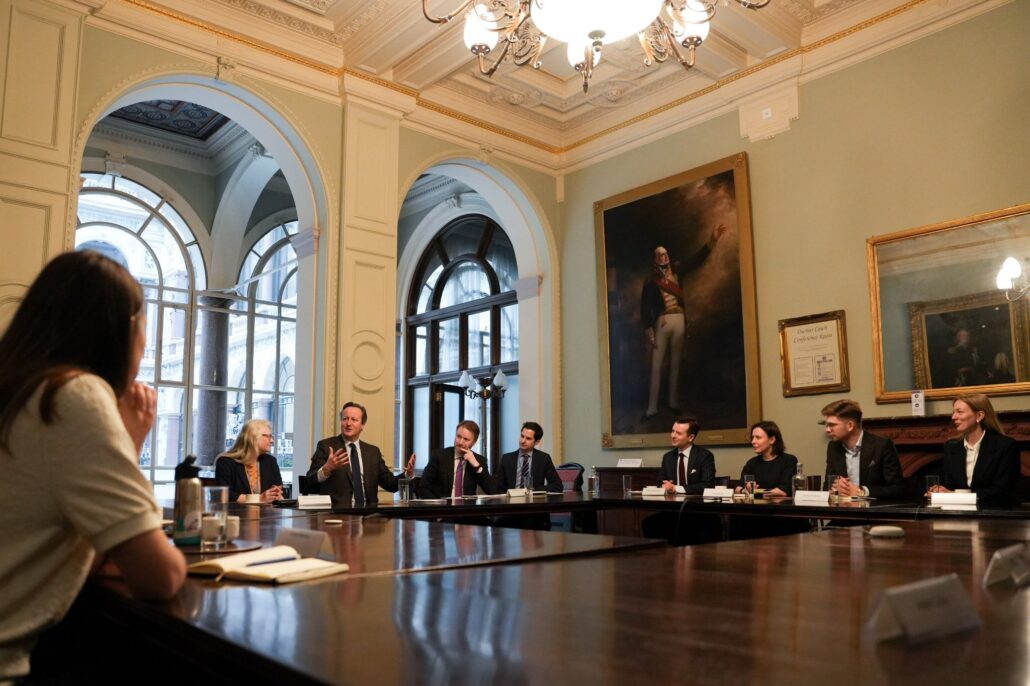Reflecting at the midway point of this year’s Centre for Democracy and Peace Fellowship Programme, this year’s Fellows have described an “infectious enthusiasm” for collaboration and innovate thinking as they tackle Northern Ireland’s most pressing political, business, and civic challenges.
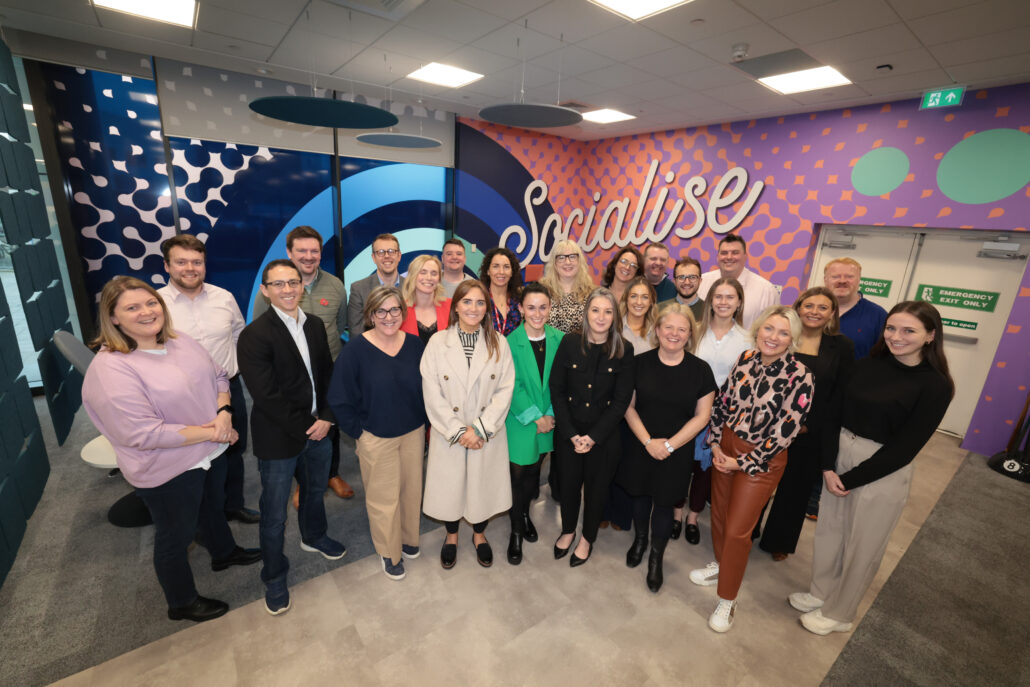
The Centre for Democracy and Peace’s 2024/25 Fellows pictured with CDP CEO Eva Grosman at Allstate NI in Belfast.
The current Fellowship is the largest cohort to date—28 leaders representing a diverse range of sectors. These include MLAs and councillors from the world of politics, CEOs and directors from the business world, as well as participants from charities, health, education, and the civil service.
So far, the Fellows have participated in the Oxford residential and sessions such as design thinking , climate and sustainability, and Good Governance and the Nolan Principles of Public Service with Daniel Greenberg CB, Parliamentary Commissioner for Standards and Privileges.
Through these bespoke sessions delivered by experts in their fields, the Fellows have been challenged to step outside their comfort zones and embrace the spirit of possibility, tackling critical issues such as climate and energy, policy, and governance. They have also been working on group projects, which they will present at the end of the seven-month programme. These challenges focus on supporting the arts, improving transport accessibility, changing the culture around political campaigns and elections, and campaigning for skills development in rural communities.
The Fellowship now boasts 98 alumni who contribute more effectively to society thanks to the relationships they have built through the programme.
One of the Fellows, Scott Carson, Constituency Office Manager for Education Minister Paul Givan MLA (DUP), shared:
“From the launch right through until today, the enthusiasm has been really infectious. The residential in Oxford was brilliant—it was a great time to meet the new Fellows, learn about each other, and realise that, regardless of our roles, we’re all on the same level. CEOs, private sector professionals, public sector participants, and those involved in politics—it was fascinating to learn from their experiences.”
“The programme’s sessions have challenged me personally, and I know others in the cohort feel the same. We left Oxford with new tools to apply in our respective organisations. Working on group projects has been a new challenge, and we’re really settling into them now. The projects we’re currently working on are all very different but equally interesting. It’ll be fascinating to see how they progress.”
“Sessions with NIE Networks and Camlin Group, and at Allstate NI last month have been intense but rewarding. The combination of theory and practical application has given us new ideas and concepts to approach our work differently. It’s been incredibly busy, but the journey has been thoroughly enjoyable.”
Cahir Hughes, Head of The Electoral Commission Northern Ireland, shared insights into his group’s project:
“Our project focuses on changing the culture around elections and political campaigns. Unfortunately, we’ve seen increasing toxicity in campaigns, with candidates and elected representatives facing horrendous abuse and intimidation.”
“Our group is tackling this issue by bringing together people from diverse sectors to find solutions and present them to government. Tackling these behaviours is a massive task, but I’m optimistic we can make a difference.”
“One unexpected benefit of the Fellowship has been the friendships I’ve developed. Being around other leaders and hearing how they approach challenges has helped grow my confidence in leadership and decision-making.”
Jane McCooey, Executive Director and Chief Operating Officer at Morgan Stanley, said:
“The Fellowship Programme has exceeded my already high expectations. The people are amazing, inspiring, and collaborative. I live in New York, so coming back and hearing about the incredible work being done in Northern Ireland makes me feel connected—it’s exactly why I joined.”
“I’m passionate about the diaspora’s role in giving back to Northern Ireland. Learning about what people here are doing inspires me to explore nonprofit work and think about how I can contribute. My group’s challenge on supporting the arts scene is especially exciting—we want to make a tangible impact by raising awareness and support for Northern Ireland’s artists.”
Reflecting on the programme’s progress, Darragh McCarthy, Chair of the Fellowship Programme’s Advisory Board and CEO of FinTrU, said:
“We’ve never had greater momentum. This is our largest cohort, with 28 Fellows who are gelling incredibly well. The Fellowship Programme is a breeding ground for optimism. Everyone involved believes in a better Northern Ireland and is eager to contribute to that vision.”
“We’re looking forward to the second half of the programme, including a Dublin residential and the graduation in Hillsborough in March. With almost 100 alumni already, the momentum is strong, and we’re excited about the future.”
The Centre for Democracy and Peace’s Fellowship Programme is supported by Northern Irish businesses, including Allstate NI, Camlin Group, FinTrU, Fujitsu NI, NIE Networks, and Ulster Carpets. It also receives backing from the Irish Department for Foreign Affairs and the Irish American Partnership.
Laurence Simms, Joint Secretary to the British-Irish Intergovernmental Secretariat, commented:
“The Fellowship Programme is well-designed to bring together professionals at pivotal career stages, fostering connections and fresh perspectives whilst challenging them through its activities.”
“We’ve supported reconciliation work for 40 years, and this programme feels modern, forward-looking, and focused on today’s challenges. It addresses systemic gaps and inertia, building a sustainable basis for an inclusive future in Northern Ireland and beyond.”
———————–
To keep up to date, follow our Twitter/X and LinkedIn accounts, as well as subscribing to our newsletter to get involved in future events.
